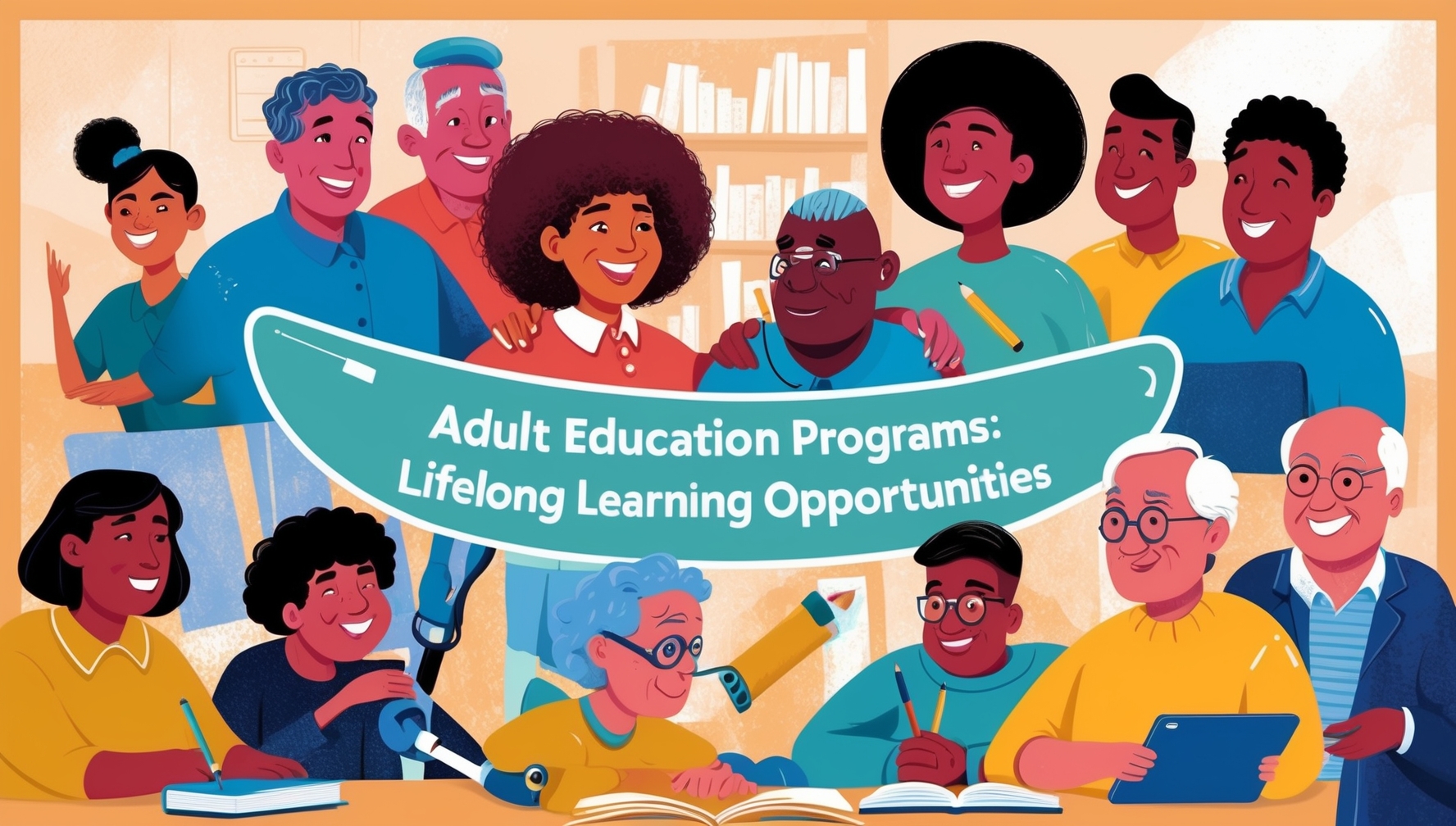Adult education programs offer individuals the chance to continue learning and developing new skills throughout their lives. These programs cater to various needs, from career advancement to personal enrichment. Here’s a comprehensive look at the benefits and opportunities provided by adult education programs:
1. Career Advancement
Skill Development: Adult education programs often focus on specific skills that can enhance career prospects. Whether it’s acquiring new technical skills, gaining certifications, or improving soft skills like communication and leadership, these programs help individuals stay competitive in the job market.
Career Transition: For those looking to change careers, adult education provides the necessary training and qualifications to enter new fields. Programs can include vocational training, industry-specific certifications, and professional development courses. Additionally, learning how to create a community library can open up opportunities in community development and education sectors.
2. Personal Enrichment
Pursuing Interests: Adult education allows individuals to explore personal interests and hobbies that they may not have had time for earlier in life. From learning a new language to mastering a musical instrument, these programs offer a way to pursue passions and enrich one’s personal life.
Intellectual Growth: Engaging in lifelong learning can stimulate intellectual curiosity and cognitive function. Adult education programs often include courses on literature, history, philosophy, and other subjects that promote mental stimulation and personal growth.
3. Flexibility and Accessibility
Variety of Formats: Adult education programs are offered in various formats, including online courses, evening classes, and weekend workshops. This flexibility allows individuals to balance their learning with work and personal commitments.
Accessibility: Many programs are designed to be accessible to people with different needs, including those with disabilities or those who need accommodations. This inclusivity ensures that more people can benefit from lifelong learning opportunities.
4. Networking and Social Engagement
Building Connections: Adult education programs provide opportunities for networking and social interaction. Participants can connect with peers who share similar interests or professional goals, fostering valuable relationships and collaborations.
Community Involvement: Engaging in community-based educational programs can enhance one’s sense of belonging and contribution. These programs often involve local organizations and initiatives, encouraging active participation in the community.
5. Enhanced Confidence and Personal Satisfaction
Achievement and Growth: Completing adult education courses or programs can boost self-confidence and provide a sense of accomplishment. The skills and knowledge gained contribute to personal and professional growth, leading to increased satisfaction and motivation.
Overcoming Challenges: Adult learners often face and overcome various challenges, such as balancing education with work and family responsibilities. Successfully navigating these challenges can enhance resilience and problem-solving skills.
6. Financial Benefits
Increased Earning Potential: Education and training can lead to higher earning potential and improved job security. Adult education programs often lead to certifications or qualifications that can result in promotions, salary increases, or new job opportunities.
Cost-Effective Learning: Many adult education programs are offered at lower costs compared to traditional college degrees. Scholarships, financial aid, and employer-sponsored programs can further reduce financial barriers to education.
7. Technology and Innovation
Staying Current: As technology continues to evolve, adult education programs offer opportunities to stay current with the latest advancements. Courses on digital skills, software applications, and technological innovations help individuals remain relevant in their fields.
Adapting to Change: Lifelong learning equips individuals with the skills to adapt to technological changes and industry trends. This adaptability is crucial in a rapidly changing job market and can enhance career longevity and success.
8. Health and Well-Being
Mental Stimulation: Continuous learning is linked to cognitive health and can help keep the mind sharp and engaged. Participating in educational activities can contribute to overall mental well-being and reduce the risk of cognitive decline. Programs that focus on the benefits of community-based learning projects can provide a stimulating and socially engaging environment, which is crucial for mental health.
Stress Relief: Engaging in learning activities can provide a constructive outlet for stress and offer a sense of purpose. Adult education can be a fulfilling way to manage stress and improve overall quality of life.
Conclusion
Adult education programs provide invaluable opportunities for career advancement, personal enrichment, and lifelong learning. Whether pursuing new skills for professional growth or exploring personal interests, these programs offer flexible, accessible, and enriching experiences that benefit individuals and communities alike.






